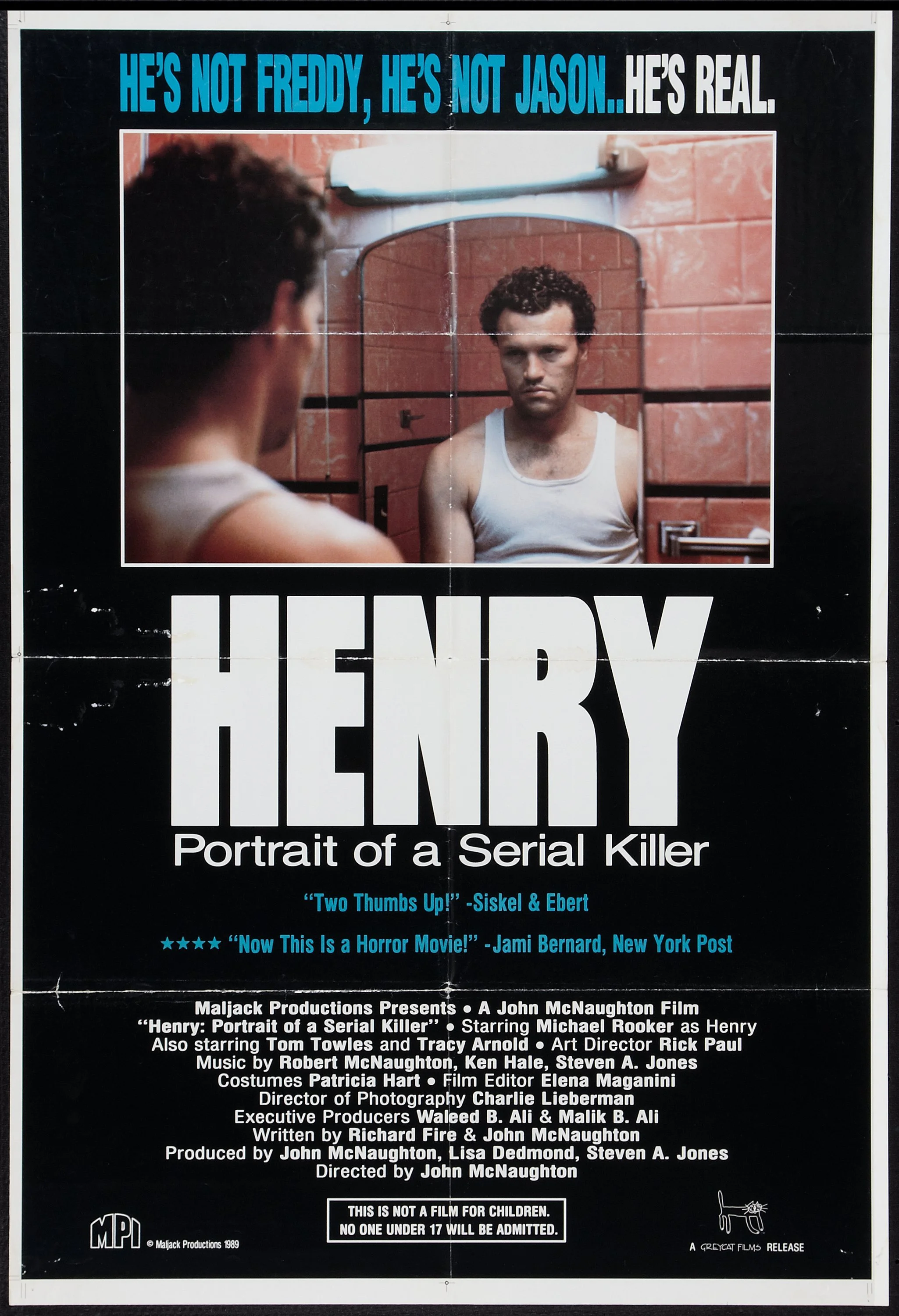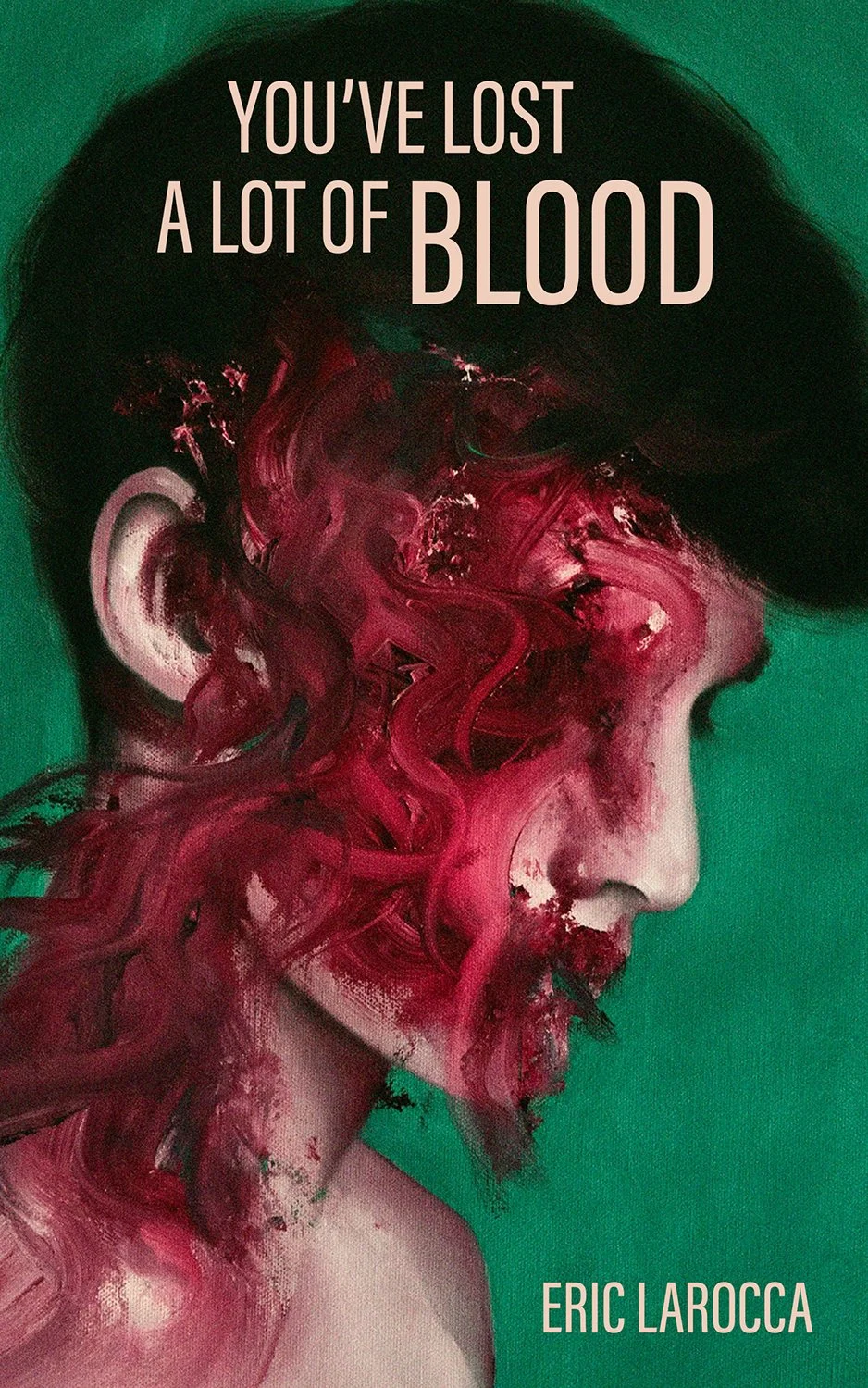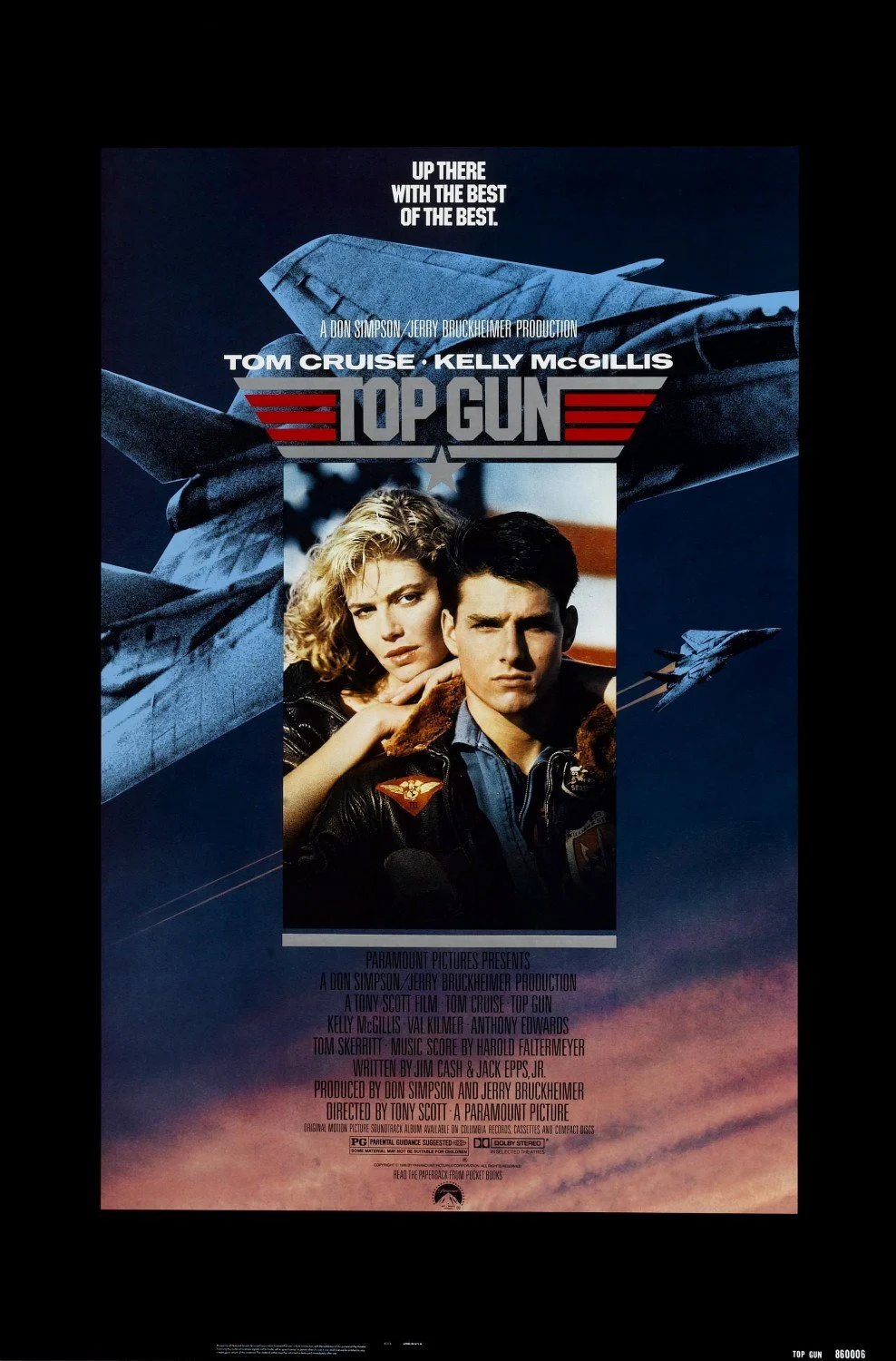Classic Movie Review : Henry: Portrait of a Serial Killer (1986)
I probably don't have to tell you if you’re reading this review, but killers are way more famous than they should be in our culture. The more fucked up, the more popular. I mean, there’s no reason whatsoever why Jeffrey Dahmer of all people got a Netflix series thirty years after his death outside of the fact that crowds love blood and guts. The eighties were a breeding ground for violent killer movies. There was Michel Myers, Jason Vorhees, Freddy Krueger and one weirdo that felt way too real for its era.
Because that weirdo featured in Henry: Portrait of a Serial Killer was indeed fucking real. Well, almost.
Henry: Portrait of a Serial Killer is loosely based (the important word here being loosely) on the story of real-life serial killers Henry Lee Lucas (Michael Rooker) and Otis Toole (the late Tom Towles) who claim to have made over six hundred victims all over the United States. The two live a joyless existence together as roommate until Otis' sister Becky (Tracy Arnold) moves in and throws their precarious balance out of whack. Irrepressible urges surface and the two start their tour of terror and death.
The Awkard Lameness of Death and Destruction
What I love about Henry: Portrait of a Serial Killer is the quasi-absence of drama. There’s a shitload of on screen death portrayed, gruesome and unforgettable scenes and cold-blooded murders, but it's not filmed seductively at all. For the first half of the movie, the only hint you get at Henry being a serial killer is a series of isolated shots of women's corpses. In some cases, you can hear the panicked screams from when they were attacked and in some cases you don’t. There’s just the nothingness of death.
But when Henry and Otis kill a stolen electronics merchant to get themselves a new television set, they steal a camera and start filming their attacks. They don’t know how to operate a camera, so they make crooked, single take little films that highlight the cruelty and the violence of their attacks. They’re not artists and they don’t pretend to be. What you witness is just an obscene display of power that translate into rape and murder. The deaths Henry and Otis leave in their trail are boring and unnecessary.
Although they’re based on real killers, Henry and Otis are also the prototype of the neighborhood lurkers everyone was so afraid of in the eighties. The guys that have no reason to kill anybody, except their own amusement. We understand today that most murders aren’t committed by men like these, but the forlorn portrait of two losers letting their lower instincts take over because they don’t know how else to exist meaningfully in the world is haunting nonetheless. They’re annoyingly plausible.
The Uncomfortable Lack of Storytelling
Violence and drama are not the only two variables of conventional storytelling absent from Henry: Portrait of a Serial Killer. There's very little story being told at all outside of two loser ex-con being thrown into a spiral of murder and mayhem because one is horny for the other's sister. There are long scenes of them playing cards or doing platitudes in front of the camera, but the dread generated via the dead bodies at the beginning artificially pumps tension in these scenes. That film is so damn counterintuitive, but it works.
The unbearable stillness of Henry and Otis' lives is crucial to the discomfort of Henry: Portrait of a Serial Killer. We are denied any form of interior existence. We're denied any way to understand them. They don’t act like they have dreams, goals or any positive plans for the future. They react to any stimulation given by their hopeless environment and their reactions are often violent and chaotic, enhancing their aura of dangerousness. Men who don’t think beyond the moment are scary as shit.
*
Henry: Portrait of a Serial Killer is a certified classic, but it’s an anti-serial killer movie. It’s an exercise in deromanticizing the idea that killers and dark, mysterious or sophisticted. Most of them are dumb as shit and they do vile things we'd rather not see. It's exactly what's going on in Henry: Portrait of a Serial Killer. You don't watch this movie and tell yourself : man, I’d love to do that to someone. That line of thinking is perhaps not sexy to land you a Netflix series, but it’s enough to make a film immortal.







